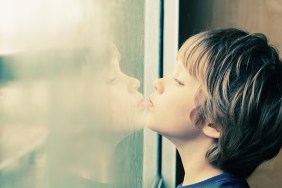Sometimes just the words “tweens” and “teens” send even the most Zen parents to sit on my couch into a complete panic. We’ve been socialized to believe that adolescence is a rocky time in the parenting journey, and it certainly can be. It’s important to maintain perspective and avoid feeding into the folklore, though. If adolescence feels like a never-ending roller coaster in your home, it’s because adolescence is a time of rapid physical and cognitive change for kids. It’s not supposed to be “easy.”
Backtalk, questionable fashion choices, and stubborn (or should we call it “independent”) behaviors are the norm for this age group. In fact, parents often feel like their tweens and teens love them one minute (you’re the best!) and positively despise them the next (you’re the worst parent ever).
Let’s discuss a sixteen-year-old boy we’ll call “Josh.” Josh was very bright and positively bored in school. The courses failed to challenge him, and he really wasn’t interested in things like literature and chemistry. He began to isolate himself from his peers and spend long periods of time locked away in his bedroom, and he had frequent outbursts when his parents attempted to intervene. They were sure he was using drugs. He wasn’t. Gaming was his escape from both the boredom of school and fighting in the home. He spent so much time gaming (up to eight hours a day), however, that he did show symptoms that caused his parents to worry about drug use.
By the time Josh sat on my couch, he was isolated, angry, and depressed. Though he still felt his gaming was a source of stress relief, it was actually ruining his life. That’s the thing about tweens and teens: sometimes they truly believe they have it all figured out because they fail to zoom out and view the situation from a different perspective.
Tweens and teens can be short-tempered and engage in angry outbursts as they work on separating from their parents. They also experience rapid shifts in emotion and crave time alone. They might not tell you every little thing like they once did because they are working on learning to cope independently. All of that falls under the umbrella of “adolescence” and shouldn’t be viewed as a cause for concern.
It’s perfectly normal, however, for parents to worry about changes in behavior and wonder whether or not an adolescent needs professional help. The best advice I can give parents is to know your child’s baseline. Sure, adolescence brings natural changes in temperament and interests, but most kids don’t stray too far from their personalities. If you see that your normally very extroverted thirteen-year-old is suddenly avoiding all peer interaction for a period of two weeks or more, you should consider it a red flag. If it’s just a few days, on the other hand, it’s probably best to let your child come to you for help if needed.
Watch for these behaviors to determine whether or not your tween or teen needs professional help.
Social isolation: Your child avoids all or most social interaction outside of school or no longer appears to enjoy time spent with friends or family.
Significant changes in academic performance: It’s natural for kids to struggle with academics at times, but big shifts and grades that suddenly drop and remain low should be addressed.
Absenteeism: School refusal or ditching school is a red flag of something bigger going on.
Changes in eating and sleeping patterns: Watch for low energy on a regular basis, too much or too little sleep, and changes in eating habits (overeating or restricting diet).
Physical symptoms: Depression and anxiety often manifest as headaches, body aches, stomach problems, and even backaches.
Aggressive behavior: Adolescents can lash out verbally, physically, or both. While mild blowups are to be expected, frequent aggressive outbursts and/or physically aggressive behavior are not.
Thrill-seeking behavior: Driving too fast, engaging in high-risk sports without the necessary precautions, frequent sexual partners, use of drugs and alcohol, and even breaking into a neighbor’s yard to go skinny dipping in the pool all fit the bill.
Neglect of personal hygiene: When the neglect is excessive (not showering for days, not brushing teeth, not changing clothes, etc.), take note.
Suicidal thoughts and behaviors or self-harm: Expressing suicidal thoughts and/or discussing plans should always be viewed as a red flag for immediate help. Cutting and other forms of self-harm also necessitate immediate attention.
Negative self-talk: Sometimes adolescents get down and out, but when a child frequently makes statements like, “I’m stupid,” “Nobody likes me,” or “I’m not good at anything,” it’s time to intervene.
Tweens and teens don’t always tell parents exactly what they’re going through, but they do establish patterns of behavior. Watch for changes and note new (and negative) patterns that emerge to determine whether or not your child is crying out for help.
While all of this information might feel overwhelming, the good news is that the MyFamPal Parent web-app takes the guesswork out of it for you. This app allows parents to enter moods, behaviors, and other parenting questions and concerns right into a smartphone. This app helps parents establish patterns and provides recommendations. MyFamPal is currently conducting anonymous research of 2,000 families using the Family Assessment Device. If you would like to contribute to this research, you can register and complete the questionnaire on their site. We intend to present the research back to you once 2,000 responses are reached.
More often than not, I end up giving parents a few simple changes to the family routine and some emotional regulation strategies to implement at home to cope with behavioral issues and the stress of adolescence. If, however, you notice a pattern of behavior that interferes with your child’s daily living (school, home, friendships, etc.), it’s important to seek an evaluation from a mental health practitioner.
Photo: Getty/Vitapix
*This blog post is sponsored by MyFampal, who reviewed product related content. All other content is my own.









